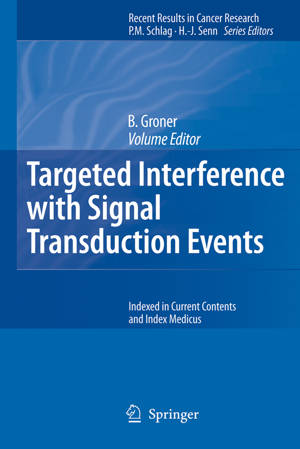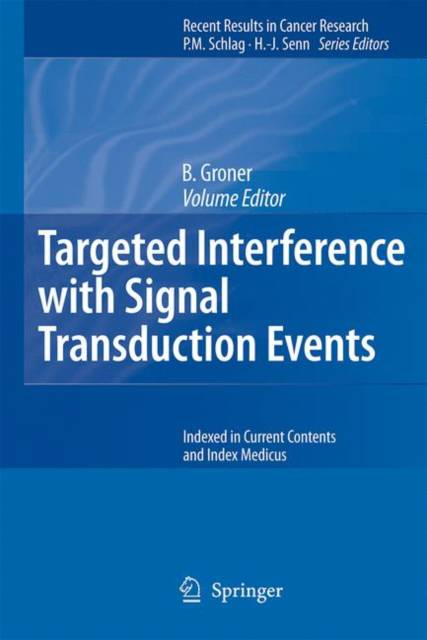
- Retrait gratuit dans votre magasin Club
- 7.000.000 titres dans notre catalogue
- Payer en toute sécurité
- Toujours un magasin près de chez vous
- Retrait gratuit dans votre magasin Club
- 7.000.000 titres dans notre catalogue
- Payer en toute sécurité
- Toujours un magasin près de chez vous
Targeted Interference with Signal Transduction Events
Description
Two aspects of biological research are major contributors to the progress in the understanding of cancer etiology and the development of new and improved cancer drugs. The sequencing of the human genome provides us with a basic overview of all our genes and gene products, and the insights into signaling pathways allow us to align crucial components of cellular regulation into an ordered functional context. A comparison of the genes in normal and in tumor cells shows that mutations in the DNA of a limited set of genes are responsible for the multiple stages of tumorigenesis and metastasis. Many of the affected genes, including oncogenes, tumor suppressor genes and genome stability genes, can be fitted into pathways. They encode molecules that stimulate tumor cell division or inhibit their death. Matching of therapeutic intervention with insights into the underlying molecular disease mechanism has already led to the development of drugs such as Herceptin and Glivec. The deregulation of pathways as a consequence of the altered biochemical function of mutated cancer genes provides the conceptual basis for future progress. Will it be possible to extrapolate this principle and derive more efficient drugs targeting cancer pathway components? Promising cell surface molecules, potential targets of monoclonal antibodies, and intracellular molecules with enzymatic activity, potential targets for low-molecular-weight synthetic inhibitors, have been identified. Our ability to predict the consequences of inhibition of such components, however, is still limited. For this reason, the development of targeted drugs remains a complex process, comprising rational and empirical elements. The state of development of tomorrow's cancer drugs, directed against growth factors, growth factor receptors and intracellular signaling molecules with kinase activities, is described in this book.
Spécifications
Parties prenantes
- Editeur:
Contenu
- Nombre de pages :
- 188
- Langue:
- Anglais
- Collection :
- Tome:
- n° 172
Caractéristiques
- EAN:
- 9783540312086
- Date de parution :
- 05-06-07
- Format:
- Livre relié
- Format numérique:
- Genaaid
- Dimensions :
- 170 mm x 244 mm
- Poids :
- 521 g






